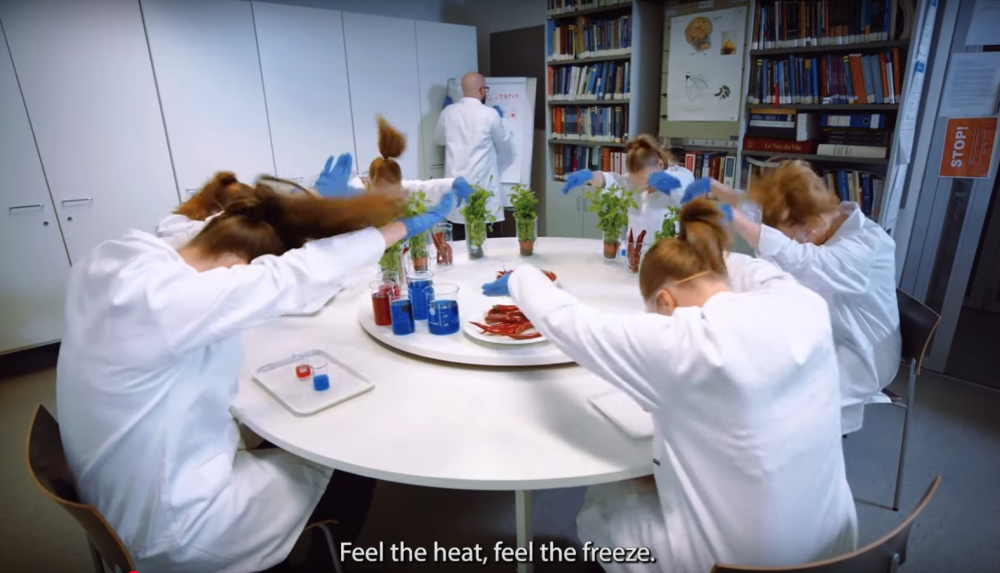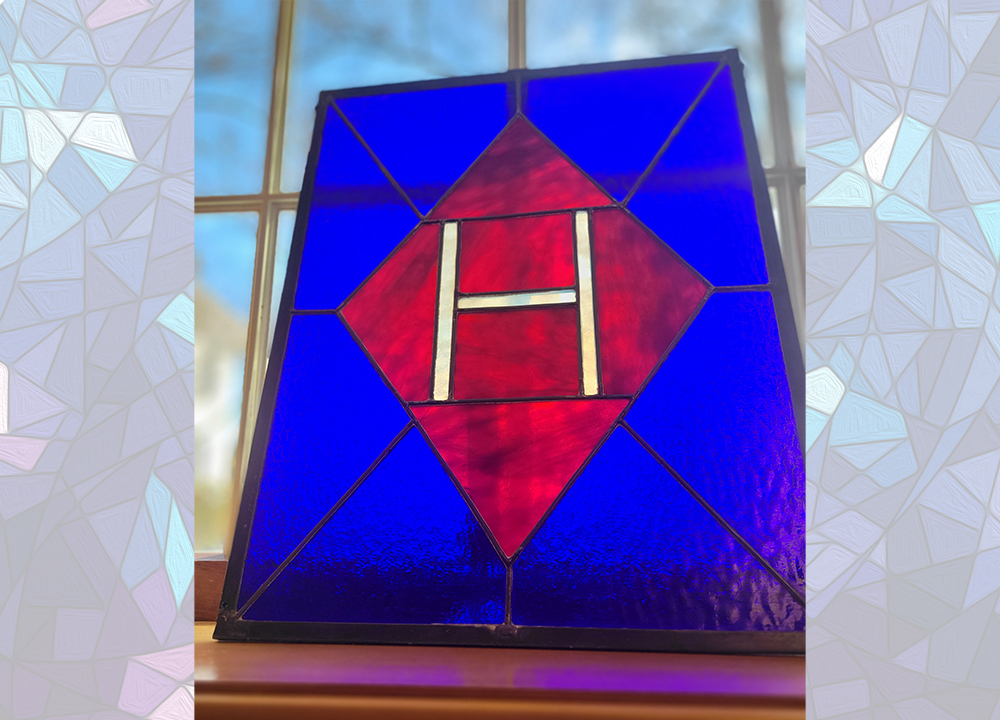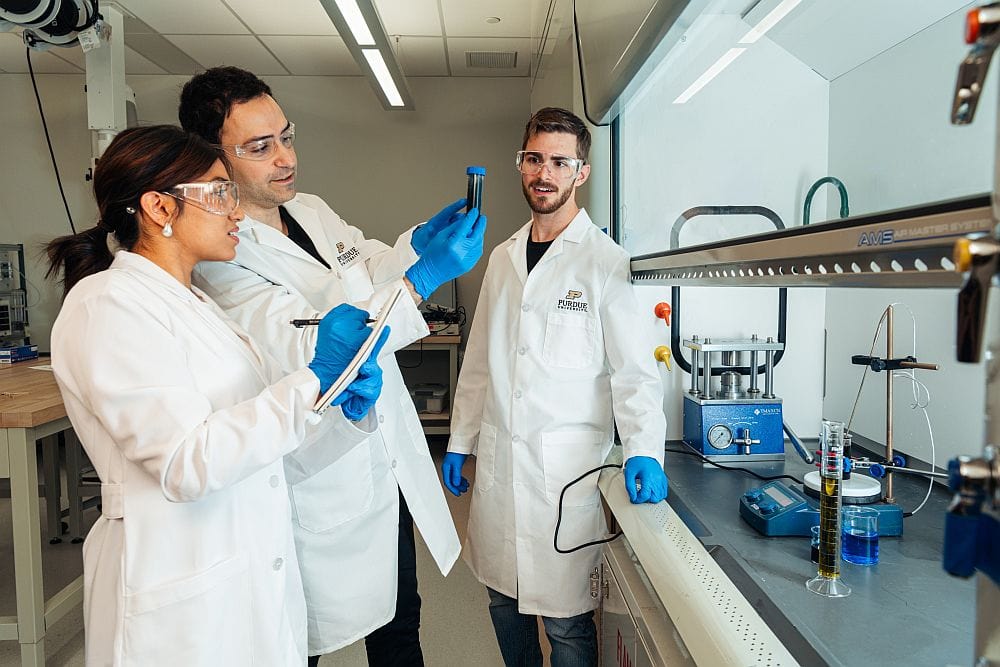
[Image above] Screenshot from the overall and chemistry category winner’s video of the 2025 Dance Your Ph.D. contest. Credit: Dr. Sulo Roukka, YouTube
Many students likely jumped with joy this month after successfully completing the spring semester. But some were dancing even before finals concluded as part of this year’s Dance Your Ph.D. contest.
Dance Your Ph.D. is an annual contest run by the American Association for the Advancement of Science and Science, the peer-reviewed academic journal of AAAS. It was created in 2008 by John Bohannon, former Science correspondent and now data scientist at South Park Commons.
Dance Your Ph.D. is a chance for scientists to interpret their Ph.D. theses through movement rather than the traditional formats of PowerPoint presentations or academic journals. The contest is divided into four categories—biology, chemistry, physics, and social sciences—and videos of each performance are judged by a panel of dancers, scientists, and artists.
In previous years, artificial intelligence company Primer sponsored the competition, but this year artificial intelligence and quantum technology company SandboxAQ took over the sponsorship. This change in sponsorship included the introduction of a special non-Ph.D. focused category on artificial intelligence research and quantum science.
The 2025 winners of Dance Your Ph.D. were announced earlier this month. View the winners of each category below, and perhaps be inspired to submit your own research next year!
Overall winner and chemistry category winner
Sulo Roukka, University of Helsinki, “Insights into oral chemesthetic perception: A focus on food-related behavior”
Sulo Roukka is a university instructor in the Department of Forest Sciences at the University of Helsinki in Finland. During his Ph.D. studies at the same university, he studied oral chemesthesis, i.e., the chemically induced tactile sensation in the mouth that comes from eating certain foods, such as the burning effect of capsaicin in chili and the cooling effect of menthol in mint.
In a university press release, Roukka says, “It was wonderful to witness how science can bring together such a creative and cheerful gang to work for a common goal.” He also found the experience to be “rather therapeutic” because he recorded the video after defending his thesis.

Credit: Dr. Sulo Roukka, YouTube
Biology category winner
Priya Reddy, Friedrich Schiller University Jena, “Unravelling the plant mechanisms involved in plant–microbe interactions”
Priya Reddy is a doctoral candidate at Friedrich Schiller University Jena in Germany. A university press release explains that she was motivated to turn her thesis on the immune response of plants into a dance video by Norbert Krause, a university public relations staff member who realized entries from German universities were rarely submitted and so encouraged University of Jena students to apply.
In the press release, Reddy says, “Research is not just for researchers, but for everyone who is curious.”

Credit: University of Jena, YouTube
Physics and AI/quantum categories winner
Arfor Houwman, University of Innsbruck, “Collective phenomena in ultracold dipolar quantum gases”
Arfor Houwman is a doctoral candidate at the University of Innsbruck in Austria. His research involves using various optical cooling and trapping techniques to cool atoms to extremely low temperatures.
Houwman both wrote the lyrics and composed the music for the video. However, while writing the lyrics came easy to him, Houwman says in a university press release that producing the music was much more time-consuming: “I really wanted to produce the song in the synthwave style that was often used in noir films in the ’80s and ’90s, for example, in Blade Runner and The Terminator.”

Credit: Arfor Houwman, YouTube
Social sciences category winner
Manisha Biswas, Humboldt University of Berlin, “The powerful outcomes of collective synchrony”
Manisha Biswas is a doctoral candidate at Humboldt University of Berlin in Germany. Her research in the Berlin School of Mind and Brain involves using virtual reality to study how synchronized movement and group dynamics impact social cognition.
In an X social media post, Biswas thanked John Bohannon for “creating a fantastic competition” and noted that “I’m truly honored to win the SOCIAL SCIENCES category of #DanceYourPhD this year.”

Credit: KineticCognition, YouTube
Author
Lisa McDonald
CTT Categories
- Education
Related Posts
Sports-quality ice: From pond side to precision Olympic engineering
February 12, 2026
Ohio Creativity Trail: Heisey Glass Museum
January 13, 2026


